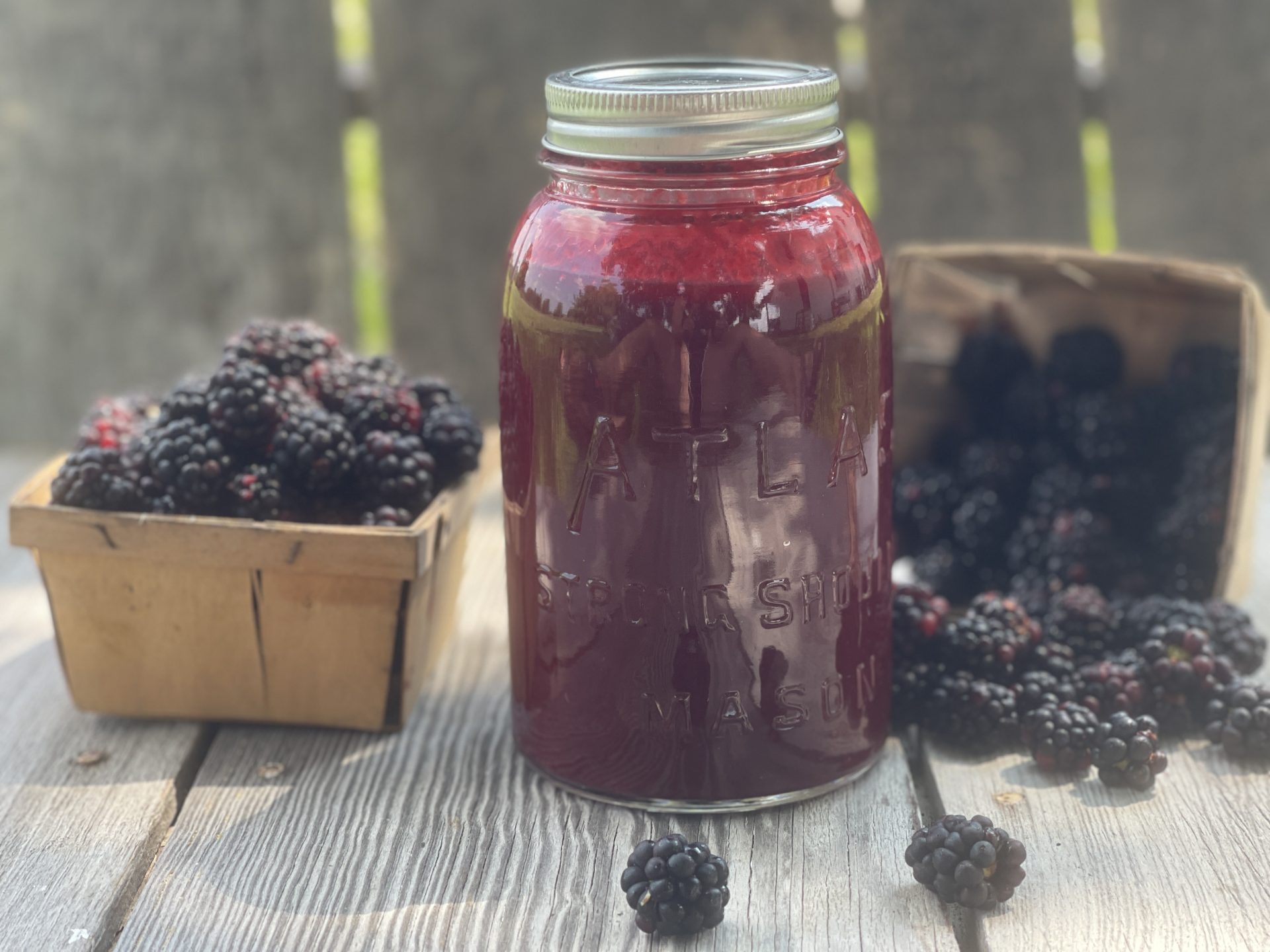Blackberry juice: A potent antioxidant powerhouse packed with vitamins and flavor, offering a delicious path to better health. From vibrant smoothies to sophisticated cocktails, its versatility shines in the kitchen and beyond. Whether you prefer the homemade route or the convenience of store-bought, this guide unveils everything you need to know about blackberry juice—its potential health perks, creative uses, and how to find the perfect bottle (or make your own!).
The Health Benefits of Blackberry Juice: A Deep Dive
Blackberry juice isn’t just a tasty treat; it’s a nutritional powerhouse that may offer a range of health benefits. Rich in antioxidants, vitamins, and minerals, this deep purple elixir has captured the attention of health enthusiasts and researchers alike. Let’s explore the potential advantages of incorporating blackberry juice into your diet.
Antioxidant Powerhouse
Blackberries are bursting with antioxidants, including anthocyanins, flavonoids, and polyphenols. These powerful compounds help neutralize free radicals, unstable molecules that can damage cells and contribute to aging and chronic diseases like heart disease and some types of cancer. While more research is needed, some studies suggest a link between diets rich in antioxidants and a reduced risk of these conditions. Discover more about the health benefits of potent antioxidants in black seed bitters.
Vitamin and Mineral Boost
Beyond antioxidants, blackberry juice delivers a healthy dose of essential vitamins and minerals. It’s a good source of Vitamin C, crucial for a strong immune system and collagen production. Vitamin K, vital for blood clotting and bone health, is also present. Additionally, blackberry juice contains manganese, a mineral involved in metabolism, bone development, and wound healing. Explore the nutritional benefits of other seeds and spices, such as carvi seed, which offers its own unique health-promoting properties.
Potential Disease Fighter
Emerging research suggests that the compounds in blackberry juice may offer protection against certain diseases. Some studies indicate potential anti-cancer properties, particularly against colon, breast, esophageal, and lung cancer. Other research explores possible neuroprotective effects, suggesting a role in preventing cognitive decline and potentially benefiting individuals with Alzheimer’s disease. While these findings are promising, more research is needed to fully understand the extent of these potential benefits.
Immunity Support
The combination of vitamin C and potent antioxidants in blackberry juice may synergistically strengthen your immune system, helping your body ward off infections. While blackberry juice shouldn’t be seen as a cure-all, it can be a delicious addition to a healthy lifestyle that supports immune function.
Crafting Your Own Blackberry Juice: A Step-by-Step Guide
Making blackberry juice at home is a rewarding experience that allows you to control the ingredients and enjoy the freshest possible flavor. Here’s a simple guide to crafting your own batch:
Ingredients & Equipment
- Fresh, ripe blackberries (about 2 cups for a small batch)
- Optional sweetener (honey, maple syrup, or sugar to taste)
- Water (optional, for a thinner consistency)
- Juicer (a Nama J2, as recommended by some TikTok users, or any high-quality juicer) or blender
- Fine-mesh strainer or cheesecloth (if using a blender)
- Saucepan (for optional pasteurization)
- Storage container
Instructions
- Prep the Berries: Rinse the blackberries gently and remove any stems or leaves.
- Juice Extraction: If using a juicer, follow the manufacturer’s instructions. For a blender, combine the berries with about ½ cup of water and blend until smooth.
- Straining (Optional): Strain the blended mixture through a fine-mesh sieve or cheesecloth to remove seeds and pulp if desired. Leaving the pulp in adds fiber to your juice.
- Sweetening (Optional): Add your preferred sweetener to taste. Start with a small amount and adjust according to your preference. Many find that ripe blackberries are naturally sweet enough without added sugar.
- Pasteurization (Optional): For longer storage, gently heat the juice in a saucepan to around 160°F (71°C) for a few minutes to kill bacteria. Avoid boiling, as this can degrade nutrients.
- Storage: Store the juice in a sealed container in the refrigerator for up to 3 days. For longer storage, freeze in ice cube trays or airtight containers.
Sourcing Blackberry Juice: Where to Buy
If making juice isn’t your style, there are several places to find ready-made blackberry juice:
Online Marketplaces
- Amazon: Offers a variety of brands like Pomona Organic, Primor Fruit Purees, and Vintners Best Fruit Wine Base.
- Walmart: Carries various brands, including Ocean Spray and others.
Local Stores
- Grocery Stores: Check the juice aisle or refrigerated section.
- Health Food Stores: Often stock organic and specialty juices.
- Farmers’ Markets: A great source for fresh, locally-sourced juice during blackberry season.
When choosing store-bought juice, opt for 100% juice with no added sugars or preservatives whenever possible. Always check the nutrition label to compare brands and ensure the product aligns with your dietary needs.
Blackberry Juice: Beyond the Glass (Creative Uses)
Blackberry juice is incredibly versatile and can be incorporated into a wide range of recipes:
- Smoothies: Blend with banana, yogurt, and other fruits for a nutritious breakfast or snack. A popular TikTok recipe combines blackberry juice with banana and yogurt for a simple, 4-ingredient smoothie.
- Cocktails: Mix with Crown Royal whiskey and Martinelli’s sparkling cider for a sophisticated drink.
- Mocktails: Blend with ice and garnish with mint for a refreshing non-alcoholic beverage.
- Desserts: Use as a base for sorbets, ice creams, or as a flavorful addition to cakes and pies.
- Sauces: Reduce blackberry juice with honey and a cornstarch slurry for a sweet and tart sauce perfect for pancakes, waffles, or even savory dishes like grilled chicken or pork.
Blackberry Juice Nutrition: Facts and Figures
The nutritional content of blackberry juice can vary depending on whether it’s homemade or store-bought, and whether any sugars are added. Generally, a cup of unsweetened, homemade blackberry juice contains approximately:
- Calories: 120-140
- Fiber: 2-4 grams (if pulp is included)
- Sugar: Naturally occurring sugars from the berries
Store-bought versions may contain added sugars, so it’s essential to check the nutrition label. Canned blackberry juice, for example, can have significantly more calories and sugar. Always refer to the product label for the most accurate information.
Does Blackberry Juice Really Exist? The Pectin Predicament
While pure, 100% blackberry juice can be a bit of a unicorn on supermarket shelves, it absolutely exists! It’s just that the high pectin content in blackberries makes processing and packaging tricky. Pectin, a natural thickening agent, gives jams and jellies their texture, but it also makes pure blackberry juice very thick, almost syrup-like. This makes it challenging to pour and package conventionally.
This is why you often see blackberry blended with other juices like apple or grape, which have lower pectin content. These mixed berry juices offer a readily available way to enjoy the flavor of blackberry, but for the pure, unadulterated experience, making your own is the best option.
Juicing Blackberries: Choosing the Right Method
Several methods exist for extracting juice from blackberries, each with its own pros and cons:
| Method | Pros | Cons |
|---|---|---|
| Cold-Press Juicer | High nutrient retention, high juice yield | Can be expensive, slower than centrifugal |
| Masticating Juicer | High nutrient retention, effective for berries | Slightly slower |
| Centrifugal Juicer | Fast, efficient | Can generate heat, more pulp |
| Blender Method | Easy, accessible, no juicer required | Requires straining |
| Heating and Straining | Smooth juice, less pulp | Might slightly reduce nutrients |
Choosing the best method depends on your priorities and available equipment. If nutrient retention is paramount, a cold-press juicer is ideal. For speed and convenience, a centrifugal juicer or blender will do the trick. Experiment and find the technique that suits you best!
Blackberry Juice: A Delicious and Healthy Addition
Blackberry juice, with its vibrant color and potential health benefits, is a worthwhile addition to any diet. Whether you choose to make your own or buy a bottle from the store, exploring the world of blackberry juice is a journey your taste buds and your body will thank you for.
- Stainless Food Storage Keeps Your Kitchen Organized And Meals Fresh - February 28, 2026
- Stainless Steel Food Storage for Healthier, Eco-Friendly Meal Prep - February 27, 2026
- Stainless Food Containers Offer Durable Storage for Everyday Meals - February 26, 2026










